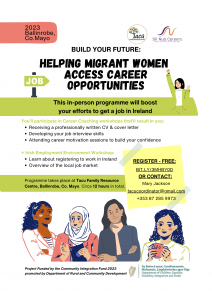Q: I am applying for jobs for which I am over-qualified, because work in my main sector (accounting) is gone very quiet. I generally get called to interview, and feel I do well, but I have not got a job yet. I know I could have easily have been a success in many of the roles. Any thoughts? (VC, email)
A: First of all, it is a competitive market out there, so it may well be the case that you are doing good interviews, but there may have been somebody better each time.
However, one thing we should look at here is what fears the company has of appointing people who are over-qualified – specifically, ‘the flight risk.’
A company may conclude that while you are capable of doing the job, you will up sticks and be gone once a job comes along that challenges and rewards you better. They would then see their investment in you – training, resources, support – going down the swanny, leaving them with regrets, and a fresh headache in the form of trying to find someone to replace you.
This is why I would seek to re-assure them in that you are not a flight risk. Show commitment to the company. You can’t deny the possibility of you wish to seek a better job – but let them know that, ideally, you would like that better job to be with them, that you’d like to advance yourself within the company, thereby justifying present investment in you.
Companies need to find their managers somewhere, and it saves them a great deal of difficulty down the line if their future managers and leaders come from within their own ranks.
So I would recommend that you leave them in no doubt but that you will commit yourself totally to the job at hand, and that, at some future point, you would like to see yourself impressing them so much that they will consider you for bigger and more onerous roles.
Sli Nua Careers top tip
As interview day looms, try to narrow down the amount of information you’re taking on board. When preparing for the interview, you are likely to have devoured a great deal of information, sourced from the job description, company website, friends or acquaintances who already work there, and a whole host of other relevant detail.
But our advice as the day itself comes closer is to reduce the information intake. By the day before, you should be focussing on just a few bullet-points, trusting that behind each of those is a welter of information you have accumulated and absorbed. Don’t try to keep reading the full range of information right up to the day itself.
Many students have great belief in cramming, and will even work until the wee small hours the night before the examination, but our advice is to ‘let go’ as the time comes closer. You need to be fresh on the day of the interview, and, if you’ve done your preparation, the information you wish to transmit will come out.
On the day itself, I recommend interviewees to have nothing more than a postcard sized piece of paper with approximately ten words or phrases on it. Refer to that postcard sitting in the foyer or waiting room. Trust that each word or phrase (e.g. versatility, customer service, IT skills, etc) will act like a portal to all the key information you wish to pass to the interviewer during the interview itself.
To get a sample copy of a Career Action Plan – and some other useful career resources – email getthatjob@slinuacareers.com with Career Action Plan in the subject line. Contact Sli Nua Careers for CVs, Interview Preparation and Mock Interviews – tel 094 95 42965.





